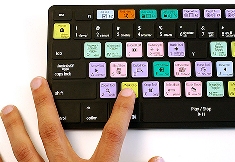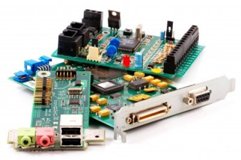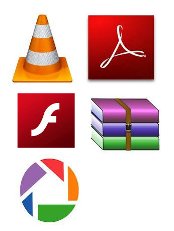
Zebibyte
A zebibyte is a unit of data storage that equals 2 to the 70th power, or 1,180,591,620,717,411,303,424 bytes.
While a zettabyte can be estimated as 10^21 or 1,000,000,000,000,000,000,000 bytes, a zebibyte is exactly 1,180,591,620,717,411,303,424 bytes. This is to avoid the ambiguity associated with the size of zettabytes. A zebibyte is 1,024 exbibytes and precedes the yobibyte unit of measurement.
Zettabyte
A zettabyte is 2 to the 70th power, or 1,180,591,620,717,411,303,424 bytes.
It can be estimated as 10 to the 21st power, or 1,000,000,000,000,000,000,000 bytes. A zettabyte is 1,024 exabytes and precedes the yottabyte unit of measurement. Because of the enormous size of a zettabyte, this unit is almost never used. The prefix zetta comes from "Zeta," which is the sixth letter of the Greek alphabet.
ZIF
Stands for "Zero Insertion Force." ZIF is a type of CPU socket on a computer motherboard that allows for the simple replacement or upgrade of the processor. Processors that use a ZIF socket can easily be removed by pulling a small release lever next to the processor and lifting it out. The replacement processor is then placed in the socket and secured by pushing the lever in the opposite direction -- hence the phrase, "zero insertion force." I suppose there is some force required to push the lever, but it is significantly less than non-ZIF sockets, which require special tools to force the processor out.
Zip
Windows users will see this term a lot when looking for files on the Internet. A zip file (.zip) is a "zipped" or compressed file. For example, when you download a file, if the filename looks like this: "filename.zip," you are downloading a zipped file. "Zipping" a file involves compressing one or more items into a smaller archive. A zipped file takes up less hard drive space and takes less time to transfer to another computer. This is why most Windows files that you find on the Internet are compressed.

To use a zipped file, you'll need to unzip it first. PKZIP for DOS, or WinZip for Windows, are some popular programs that can unzip files for you. Fortunately, these programs can be downloaded for free from Web sites like Download.com. Macintosh files are most often "stuffed" into Stuffit files (.sit), which can be "unstuffed" using Aladdin's Stuffit Expander.
The term "Zip" also refers to a product by Iomega. The company makes a removable storage device called a Zip Drive. Depending on the model, these drives can hold 100, 250 or 750 MB Zip disks. They are usually used for backup and for transferring large files to different locations. However, Zip drives are not as fast as hard drives, so it is usually not a good idea to run programs off them.
Zone File
A zone file is stored on a name server and provides information about one or more domain names. Each zone file contains a list of DNS records with mappings between domain names and IP addresses. These records define the IP address of a domain name, the reverse lookup of an IP to other domains, and contain DNS and mail server information.
Because zone files are plain text files, they can be edited quickly and easily. However, this also means that if unauthorized users gain access to zone files, the files can be easily modified. This could cause websites to not respond, or worse yet, redirect to the wrong Web server. For this reason, it is important to keep the zone files on a highly secured server and always have a recent backup of zone files on another machine.

| Terms |
| Zebibyte |
| Zettabyte |
| ZIF |
| Zip |
| Zone File |
| Web Pages by Students |
ABC of C Language by Shailender Sharma |
Bootable Pen Drive by Avtar Singh |
e-Trash or e-Treasure? by Pallavi Bagga |
Lakshya by Rabina Bagga |
OOPs Concepts by Navjot Kaur |
Fitness First by Ankush Rathore |
Information Systems by Kajal Gupta |
Quiz Contest in C++ by Rajnish Kumar |
Core Java (Tutorial) by Shyena |
C Language Q&A by Anmol Sharma |
HTML 5 Tutorial by Kishan Verma |








